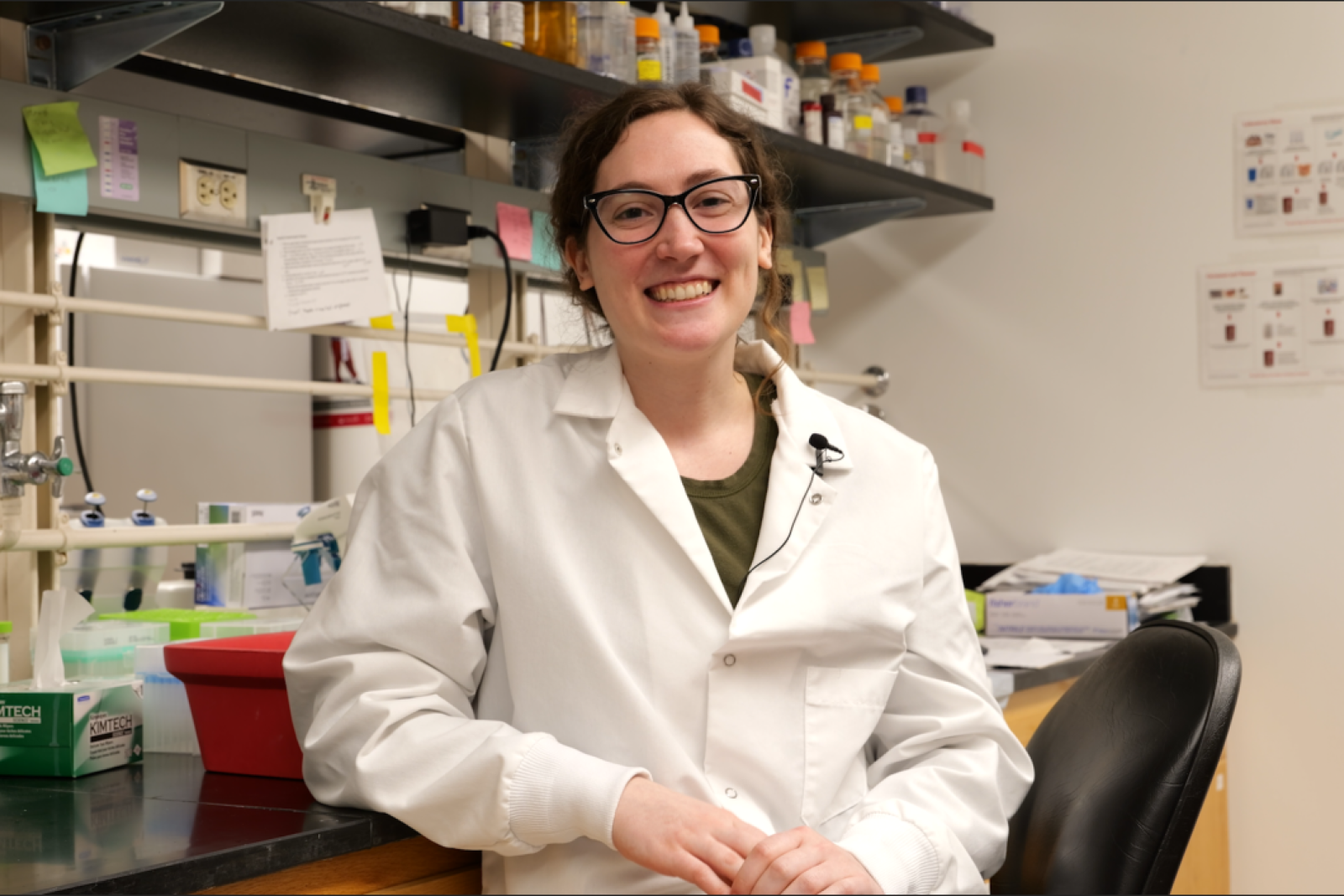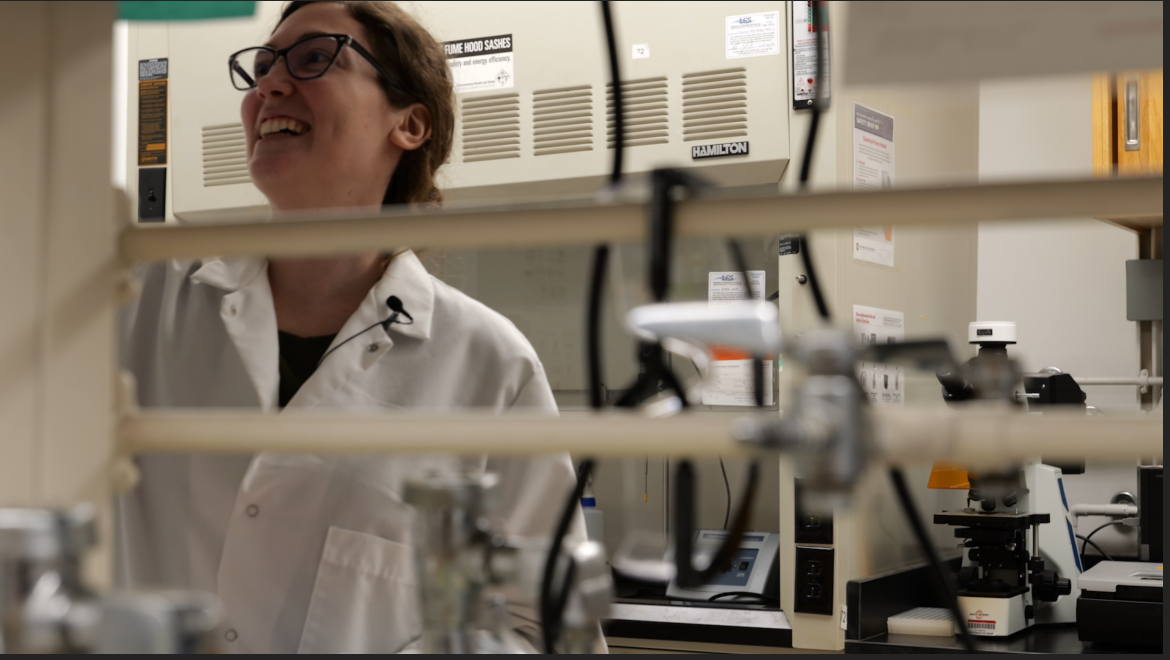Balancing act: PhD candidate Josie Silvaroli manages the responsibility of research in and outside of the college

9:07 a.m. - Josie Silvaroli flicks on an impossibly loud light switch, drops her backpack in the graduate office and pulls a bin of samples from the freezers of room 408 of the Riffe Building.
Today begins like most others. Silvaroli, a PhD candidate at The Ohio State University College of Pharmacy, sets up for a day of research in the lab of Navjot Pabla, PhD, associate professor of pharmaceutics and pharmacology.
Since 2020, Silvaroli has been a graduate researcher in Dr. Pabla’s lab. She recalled being in awe of the work that his lab was tackling during her first year of rotations as a graduate student.
“As a first-year PhD student, I was so fascinated by the way Dr. Pabla framed science in our class,” Silvaroli reflected. “I felt like he had a unique perspective when thinking about science and I was inspired to learn from him.”
The Pabla Lab investigates acute kidney injury (AKI), a type of kidney failure or damage that commonly affects patients in the hospital. Over the past four years, Silvaroli has been integral in supporting the lab’s AKI research efforts.
Listening to Silvaroli explain what’s on her daily to-do list is intimidating. She holds the reins to a myriad of interconnected projects, from manipulating test genes to classic bench work. But with nearly four years of experience, she’s got it all under control.
“My days are truly about balancing my focus,” she said. “I have little bits of each project going on in my day, but I’ve got it covered as long as I’m keeping a list and regularly meeting with my PI.”
Chasing down the answers of AKI therapeutics has led Silvaroli to some significant discoveries. Her dedication to the lab’s research has opened doors to several fellowships outside of the university. This means that in addition to her work supported by Dr. Pabla, she’s managing projects that tackle novel work sponsored by outside collaborators.
In addition to receiving the Ohio State Presidential Fellowship Award in 2022, Silvaroli was selected as an American Heart Association (AHA) Predoctoral Fellow the previous year.
“The most influential change I’ve noticed as a researcher is my growth in confidence,” Silvaroli reflected. “My time in the Pabla Lab showed me the techniques to make my discoveries and ultimately, I had a safe space to explore the topics I’m working on. That’s made me a successful speaker and scientific partner as I pursue these outside opportunities.”
Through her AHA fellowship, Silvaroli received additional funds to support her research of the CDKL5 gene in return for her time and the results of the study. Silvaroli was able to present her findings to the local AHA chapter in January.
“It’s a lot for me to balance my projects, but I can’t ignore how exciting it is to be the first to discover something,” Silvaroli said. “The more my research advances, the more I can contribute to my field of research.”
Most recently, Silvaroli was awarded the 2023 CDKL5 Forum Junior Fellowship Award by the Loulou Foundation. This fellowship will fund Josie’s further research on CDKL5, focusing specifically on the role it plays in CDKL5 Deficiency Disorder.
“If you look at all the different ways that my research has branched out from my initial assignments, it seems quite difficult to manage,” Silvaroli explained. “But with the foundation of Dr. Pabla’s lab, the work I’m doing on my own still connects back to AKI and is really just a piece of a much bigger puzzle we’re working on.”

Now in her final year of graduate school, Silvaroli is wrapping up what she can of her many research projects. She's already published 16 papers in major research publications through her cumulative studies. But despite her success in the lab, she hopes to take a step back from research and explore teaching after graduation.
“I enjoy simplifying complex science so that anyone can take their first steps in research,” Silvaroli said. “While mentoring students in the lab, I’ve really connected with showing them the techniques that they’re using and why.”
Even though teaching might represent a step away from full-time research, Silvaroli expects that it will give her an opportunity to chase that sense of learning she’s grown so fond of.
“Teaching will give me the opportunity to break down complex ideas for new researchers and even re-learn more basic techniques,” Silvaroli said with an air of hesitant excitement. “I’m excited to tackle the new challenges of teaching and look forward to helping students.”